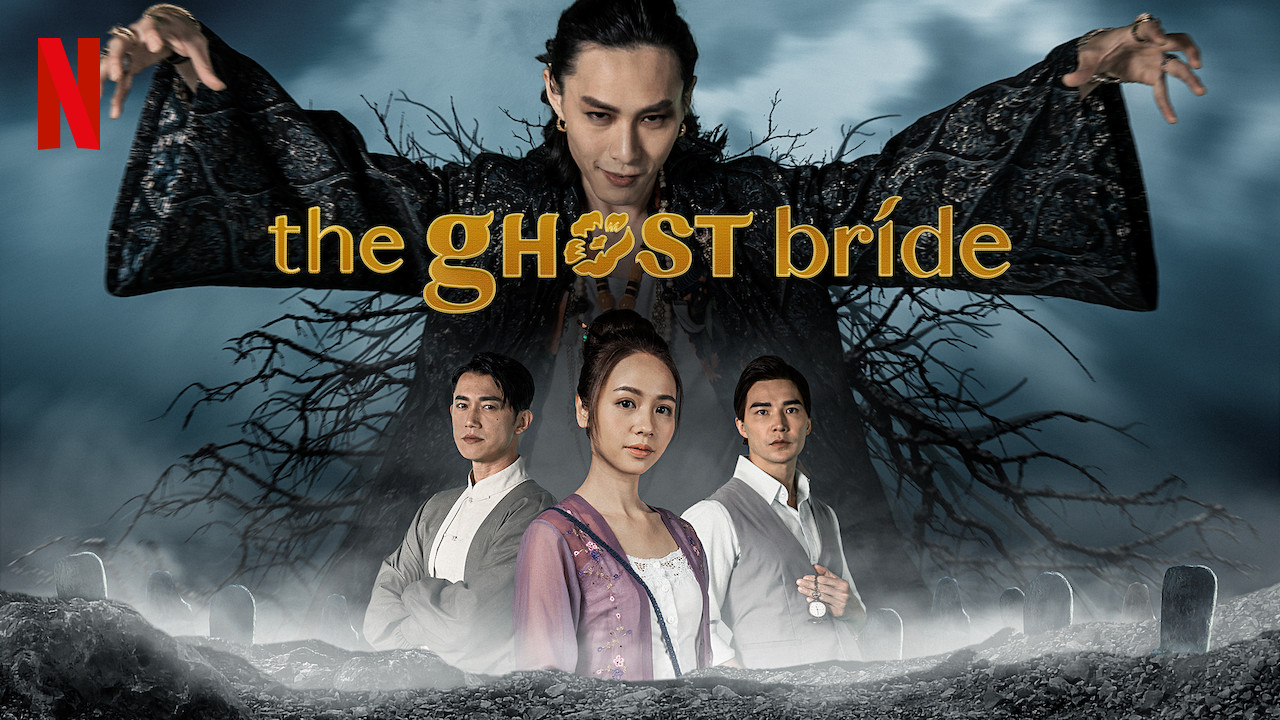During this festive season, it seems fitting that we round out the New Year with an original Malaysian series from everyone’s favourite local streaming service, Netflix. I won’t lie, when I heard the news I was quite excited to see how our local productions would measure to the rest of Netflix’s catalogue of films and series. Our local boys Quek Shio-Chuan and Ho Yu-hang have made it to the big leagues and it’s time to finally see if The Ghost Bride measures up to the hype.
It doesn’t. It’s fine for what it is and there are some genuine moments of inspired storytelling and visual flair here but the show has become a victim of its own proposed novelty. It’s a painfully predictable tale that relies heavily on setting, elements of Asian mysticism (that does yield occasional esoteric appeal) and its cast of inconsistent quality.
The story of The Ghost Bride follows a Malaccan Chinese woman Pan Li Lian as her family enters into a strange agreement to have her married off to the deceased son of the wealthy Lim family. This, in turn, would free the Pan family from financial debt and have them enter into the Lim family. An offer refused by Li Lian’s father at first but her ordeal is far from over. Under mysterious circumstances, her father begins to fall sick and is revealed to be dying. It turns out that the deceased son, Lim Tian Cheng really is a spirit and the notion of a ghost bride is far from being merely ceremonial.
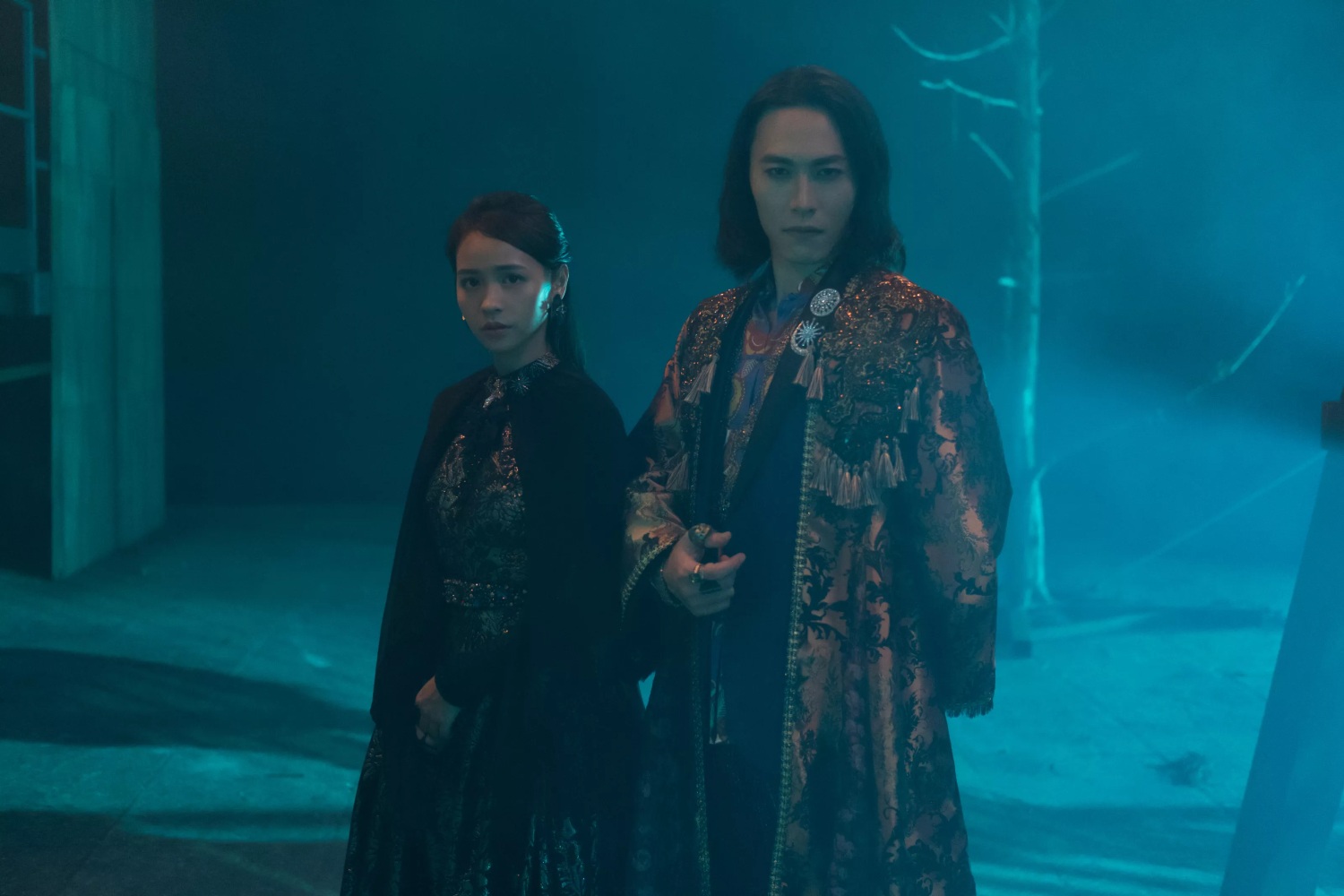
Madness ensues as she gets caught up in a whirlwind of supernatural and worldly conspiracy surrounding Tian Cheng’s death. Her journey will take her from the streets of Malacca to the lavish courts of the local aristocracy to the depths of the underworld and even before the gods themselves. She also has ten days to solve the murder of Tian Cheng if she wants to save her dying father. That’s about the gist of it.
In spite of the multiplicity of plot threads going on, Ghost Bride never devolves into a tangled mess to the show’s credit. It does a competent enough job of easing viewers into its world, though at the expanse of other aspects of the show but we’ll get to that later. Whenever the show focuses on the more grounded drama of Tian Ching’s death, it can feel like an utter chore as we follow Li Lian play wannabe Sherlock in an effort to uncover the mystery of Tian Ching’s death.
I won’t give anything away but needless to say, it all feels relatively passe. There’s also a whole romantic subplot revolving around Li Lian and Lim Tian Bai’s relationship. A revelation comes to light that will make her question everything she knows about her childhood friend Tian Bai.
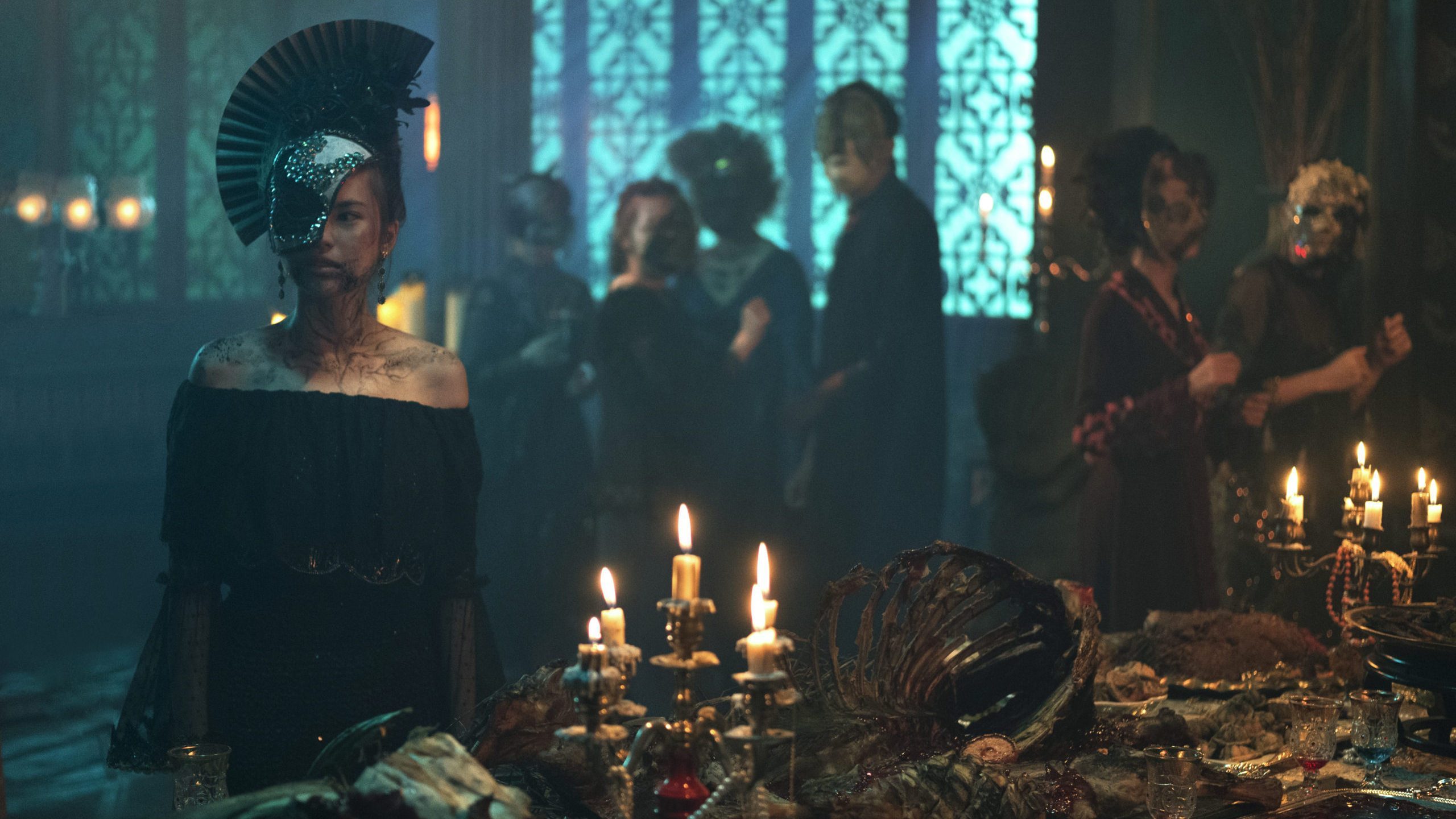
Where the show does capture my attention is when it leans into the more interesting aspect of the Chinese afterlife, namely the rules of the Netherworld and how reincarnation works. There is a sort of permanent, final death looming over Lian’s father if she fails her task that adds palpable weight and gravity to the narrative. Then there’s Lim Tian Cheng, the ghost groom, who propels the plot forward.
By far the most entertaining part of Ghost Bride was seeing actor Kuang Tian’s performance on-screen as the maniacal and cold-hearted Tian Ching. Does Kuang Tian dip into the realm of pure cheese and operatic melodrama? Oh, you best believe it but frankly, I don’t care. The guy steals every scene he’s in whether he’s making crazed-eyed threats or doing his best impression of an Eastern Mephistopheles. Unfortunately, the rest of the cast doesn’t quite have his gravitas.
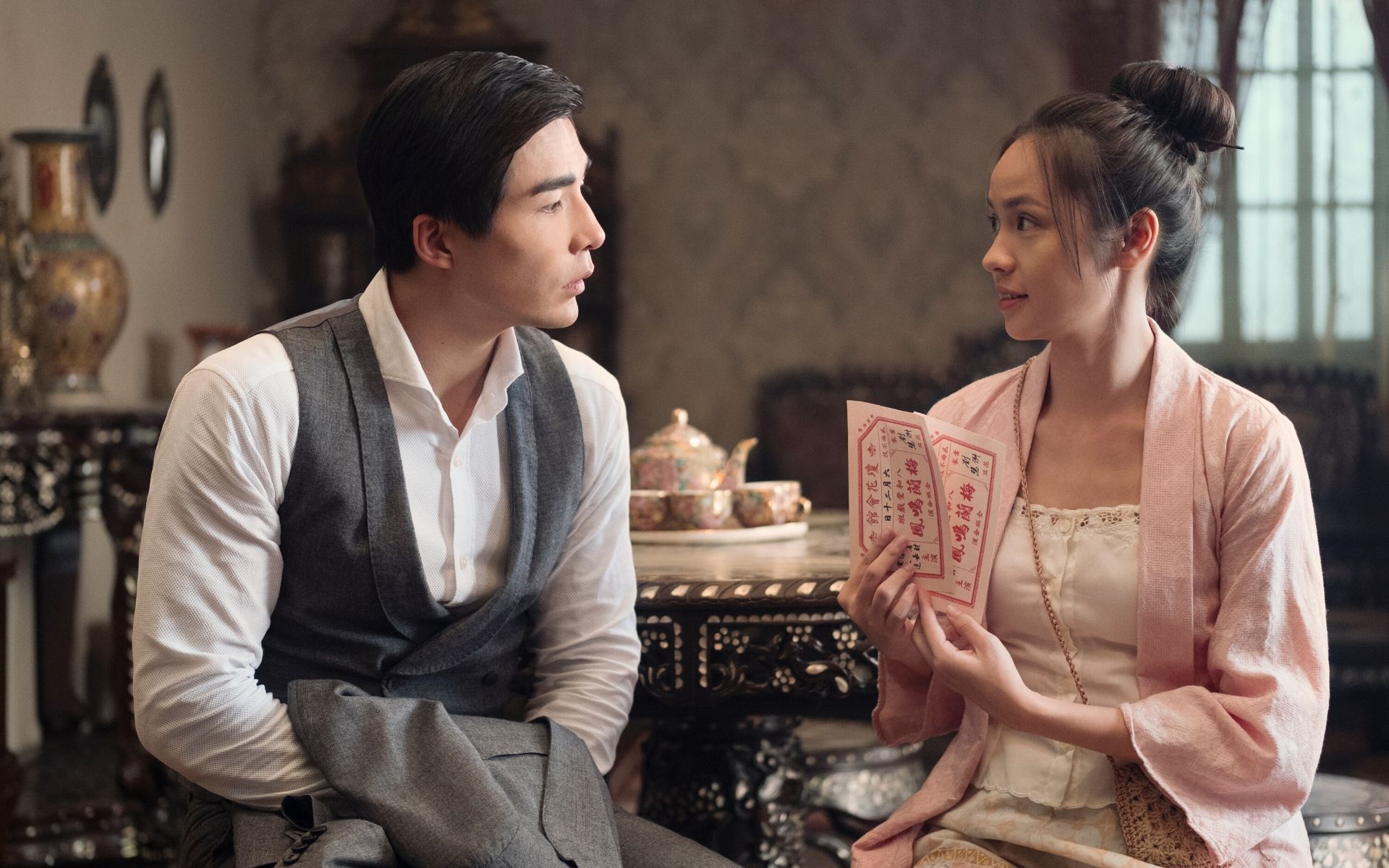
The titular ghost bride played by Huang Pei-jia is your archetypal plucky girl next door who doesn’t want to tie down a man and speaks her mind. Great, get in line. The irony is that at no point does Li Lian really develop a personality beyond the men in her life. She goes on a journey to save the only family she has left, her father from Tian Cheng, a man forced upon her by spiritual blackmail. The trajectory of her character never strays far from the damsel in distress. Any form of actual growth we see in her is immediately engulfed by the larger-than-life events surrounding her. Don’t look to Ludi Lin’s Lim Tian Bei to be this show’s saving grace either. He’s about as pretty and wooden as a traditional ornamental table.
The main issue why Ghost Bride fails to engage in meaningful ways can be attributed to the show’s writing. The dialogue here is exposition-heavy and there’s a lot more telling than there is showing on screen. I’m aware that when it comes to Chinese TV and cinema that melodrama is the key, drawing heavily old from old, operatic traditions. However, there is a certain push-and-pull when it comes to conversations that emanate out of organic repartee.
A hallmark of great writing is when the flow of a conversation can seamlessly bob between intrigue and enlightenment, humour and hostility, character development and plot progression. The Ghost Bride has as much poise as a freight train careening into a building. When it’s time to get serious, you’ll know because the characters are doing a ton of yelling and harsh whispering.
It certainly doesn’t help that the musical scores of Ghost Bride sound like they were ripped off a royalty-free website. It’s 2020 people! If you still need stock light, bubbly “comical music” to convey the humour of a particular scene, then I’m afraid to say that it’s back to film school with you. It’s also frankly insulting to the audience’s intelligence. The production quality’s not all bad though.
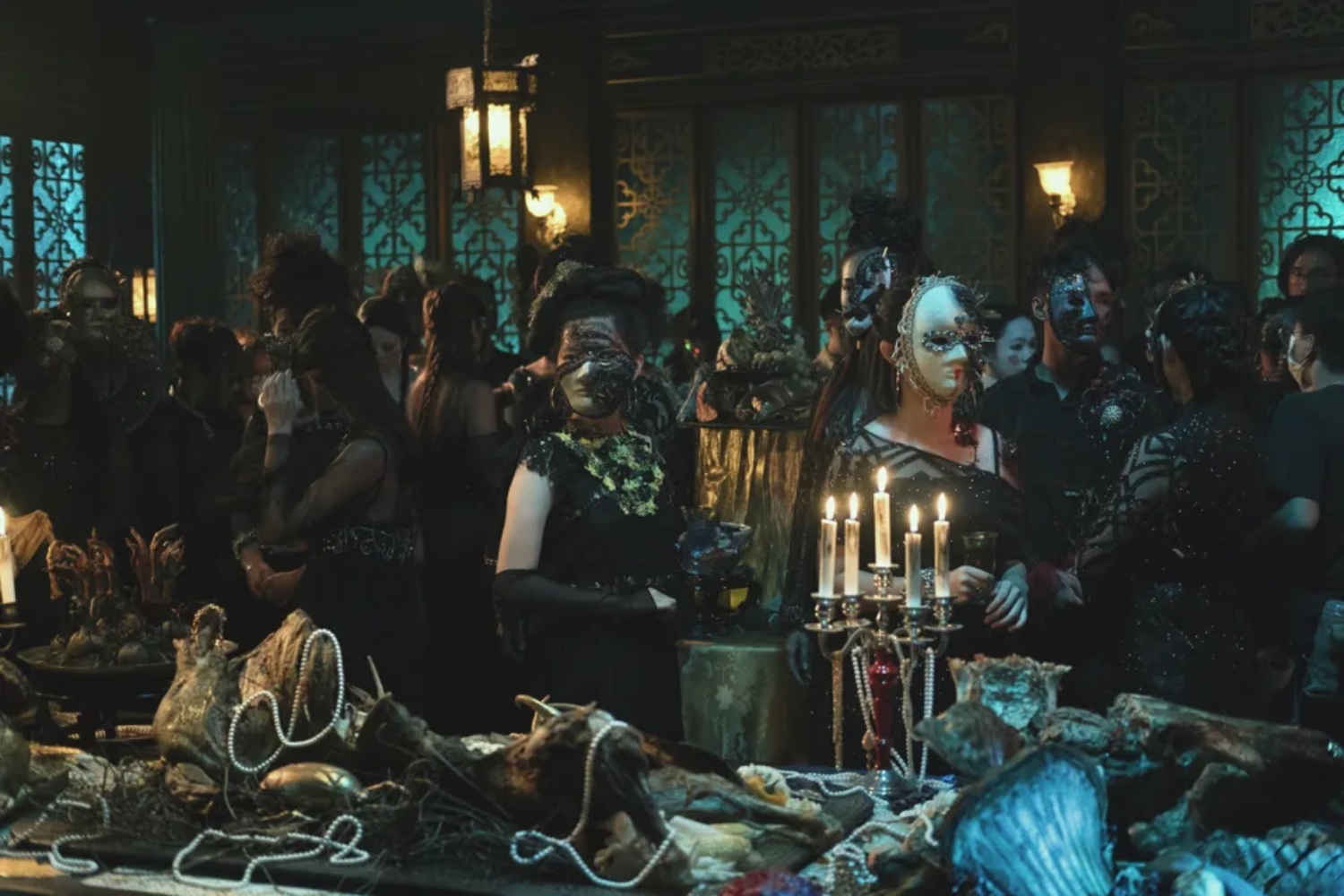
Some of the sets in Ghost Bride are actually quite impressive. By no means is anything King’s Landing here but there is a certain level of dedication to the aesthetic that can be appreciated, especially when it comes to the Netherworld. The hellish landscape of the afterlife bears a similar look and feel to the distorted mirror funhouse of films like James Wan’s Insidious. The latter half of the series is when things really kick into high gear in terms of action and supernatural drama. That being said, if you’re not quite willing to slog through nearly 3-hours of forgettable setup, I totally get it.
Outside of the Malaysian crowd, it’s hard to recommend Netflix’s The Ghost Bride to anyone else. Malaysians will definitely get a kick out of seeing some national representation on the streaming service, especially if you’re big on traditional Chinese culture. But, it’s by no means great television. There’s room for expansion, character exploration and world-building if Netflix does decide to greenlight a second season.

I do appreciate the level of scale and ambition brought to Ghost Bride. If perhaps the show leans into its mythology and supernatural elements in its second season, then we could have a great piece of cultural fantasy. For now, it is a wholly middling affair that belongs to the primetime schedule on Astro Wah Lai Toi.
Follow us on Instagram, Facebook, Twitter or Telegram for more updates and breaking news.


